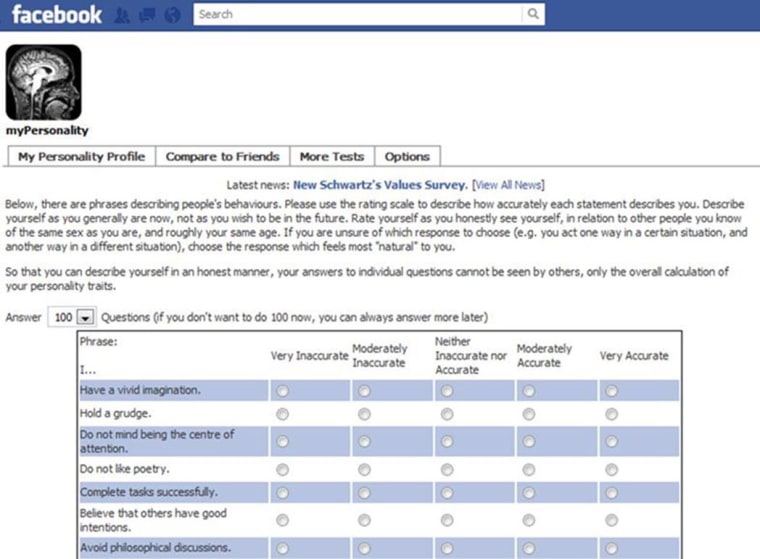Can your Facebook "likes" give away the true you? A computer was able to accurately assess personality using only a little bit of Facebook activity, researchers reported Monday.
They said their program jibed with results from an online survey, administered via Facebook — and was more accurate than what peoples’ Facebook friends said about them.
"In the future, computers could be able to infer our psychological traits and react accordingly, leading to the emergence of emotionally intelligent and socially skilled machines," said Wu Youyou of the University of Cambridge's Psychometrics Center, who led the study published in the Proceedings of the National Academy of Sciences.
"In this context, the human-computer interactions depicted in science fiction films such as ‘Her’ seem to be within our reach."
In the 2013 film “Her”, actor Joaquin Phoenix falls in love with the voice generated by his computer operating system
Wu and colleagues culled data from more than 86,000 people who voluntarily took a “personality test” using the “myPersonality” app offered on Facebook from 2007 to 2012. The 100-question test is based on the so-called “Big Five” personality traits: openness, conscientiousness, extroversion, agreeableness, and neuroticism.
Then, they used a computer to analyze each volunteer’s Facebook “likes.” These are pages or posts for which you can click a “Like” button, presumably to indicate approval.
“Liking” a page or post about Buddhism or Amnesty International would indicate a liberal, artistic personality on the “openness” scale, Wu said. “Liking” Rush Limbaugh or Ford Motor Company indicates a more conservative, conventional type.
Some other associations they found:
- “Well-organized” personalities liked cycling or “The Apprentice” while “spontaneous” types liked “The Velvet Underground” and vampires.
- “Outgoing” personalities liked Snooki and something called “BEER PONG!” while “shy and reserved” types liked “Star Trek” and “Wikipedia”.
- “Cooperative” types liked hugs and “Pirates of the Caribbean”; “competitive" types liked sarcasm and Nikki Minaj.
- “Emotionally unstable” types liked “Prozac Nation” and Kurt Cobain; “calm and relaxed” types liked skiing and ESPN.
Wu denies that the computer program is just assessing what people want to believe about themselves as opposed to providing true insight into personality.
“I think this is accurately responding to personality, because the “Big Five” personality theory is a well-established theory,” she said. “Researchers have shown that results from taking a test accurately describe people’s real-life behaviors.” And she believes the sample size of more than 80,000 people of different ages and backgrounds gives it weight.
Other studies have suggested that most people are fairly honest on Facebook and don't post "idealized” versions of themselves, although that's not true 100 percent of the time.

Wu and colleagues are not the first do do this, and the research is of keen interest to marketing companies.
By looking at “likes,” the computer was better able to match a person’s self-selected personality traits on the test than were real-life Facebook friends. The researchers had 17,622 participants judged by one friend or family member, and 14,410 judged by two friends.
Wu and colleagues think their program might be useful for online dating services or employers. But they’re also aware that not everyone is totally forthcoming on Facebook say they are keenly aware of privacy concerns.
"We hope that consumers, technology developers, and policy-makers will tackle those challenges by supporting privacy-protecting laws and technologies, and giving the users full control over their digital footprints," said Dr. Michal Kosinski, now of Stanford University’s computer science department, who’s been studying machine learning and ways to use Facebook profiles.